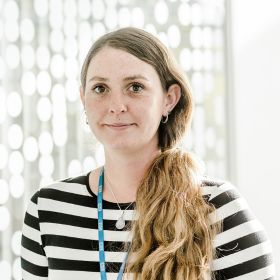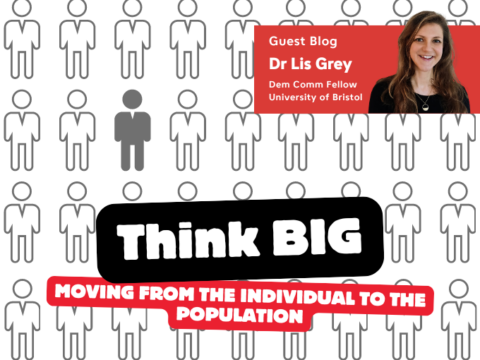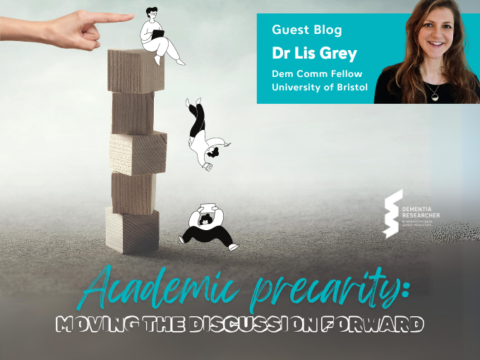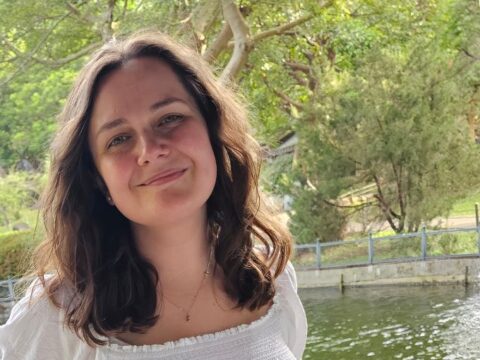
Dr Laura Palmer
Name:
Dr Laura Palmer
Job Title:
South West Dementia Brain Bank Manager
Place of work / study:
University of Bristol
Area of Research:
I am the manager of the South West Dementia Brain Bank (SWDBB) and the Bristol Brains for Dementia Research project. The SWDBB is an invaluable research resource of post-mortem brain tissue from people with dementia or other neurological conditions and from people who have not been affected by these diseases. The aim of the SWDBB is to provide researchers with access to high quality brain tissue to further our understanding of dementia. I am also the Designated Individual for the SWDBB, Bristol Medical School license having previously served as Senior Person Designated since the introduction of the Act in 2004.
I studied at the University of Bristol where I completed a degree in Pathology & Microbiology and later my PhD in Neuroscience. In 2004, I first began a technical post with the SWDBB before later progressing to the role of manager.
My PhD was completed part-time, between January 2006 and July 2014 which was sponsored by the charity BRACE and focused on the Renin Angiotensin System (RAS) which is an important enzyme pathway and signalling system. It acts to control blood pressure, fluid balance and hormone secretion. The RAS pathway in the brain is independent from that in the rest of the body, reflecting the fact that the components of this pathway have very specific actions in the brain. Indeed, all of the components of the RAS are present within the brain, and some are thought to have neurotransmitter-like properties and have been reported to influence behaviour and cognition.
The RAS is of particular interest because it is targeted by antihypertensive drugs, very little is known about their effects on the brain and how they affect people at risk of Alzheimer’s disease (AD) or in the early stages of the disease. There is a considerable body of epidemiological evidence suggesting links between vascular risk factors such as hypertension and AD risk, and increasing evidence that antihypertensive therapies that target the RAS may be of benefit to cognition.
How is your research funded:
The SWDBB is funded by the following charities: BRACE, Alzheimer’s Society, Alzheimer’s Research UK and is under the custodianship of the University of Bristol who underpin the tissue bank infrastructure.
Tell us a little about yourself:
I live in rural Somerset with my partner, our three children (who are 3, 12 and 14) and a tearaway rescue kitten called Nala. My favourite things in life are family walks by the coast, National Trust meet ups with friends, reading and horse riding.
Tell us a fun fact about yourself:
I had a lot of interesting work experience before joining the SWDBB team, ranging from waitressing, frying in a chip shop, microbiology at CEFAS (Centre for Environmental, Fisheries and Agricultural Science) to working at the Sea Life Centre in their biological sciences department. I also worked in Tesco for 8 years (as a checkout assistant, petrol filling station attendant and pharmacy assistant) while studying and in my first years as a brain bank technician and part-time PhD student during which time I was diagnosed with dyslexia.
Why did you choose to work in dementia research?
During my degree, my beloved grandmother Libby had a series of strokes and developed vascular dementia. I didn’t know much about the condition at the time, so I did some research into it and became really interested. I learned how many people it affects and what a widespread disease it is so when I saw a job advertised at the brain bank, I knew this was my opportunity. It was important for me to try and make a difference and help those affected by the disease and their families in the future.
What single piece of advice would you give to an early career researcher?
Make the most of every training and development opportunity both in the workplace and outside it; skills and experience are transferable no matter how random they might seem!
What book are you reading right now? Would you recommend it?
Friends, Lovers and the Big Terrible Thing by Matthew Perry. Although I have only recently started reading this memoir, the timing feels somehow right. It’s both sad and funny, and yet strangely compelling. A brutally honest account of the realities of addiction, the hope found in sobriety and everything in-between.

 Print This Post
Print This Post





